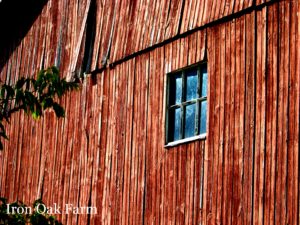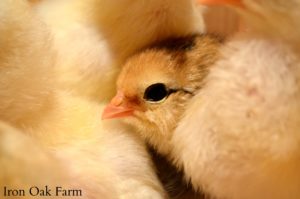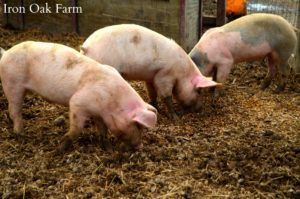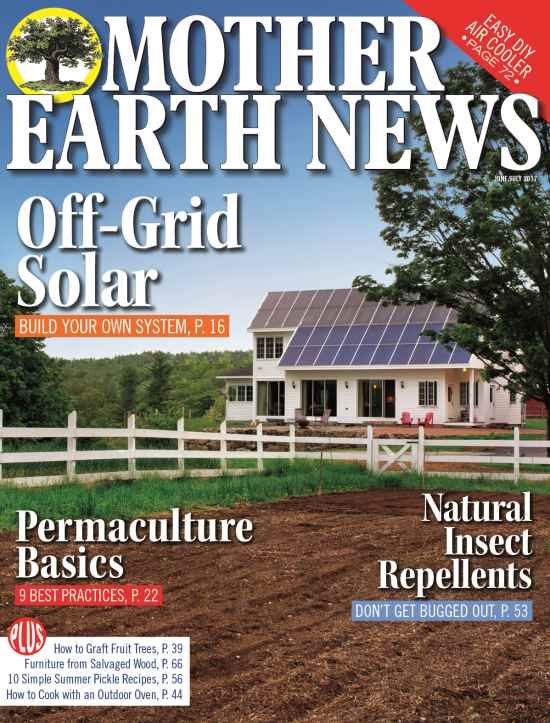 I hear a lot of discussion about how farms/homesteads are represented, especially on the internet. I love photography and photographing our farm is one of my favorite things to do. By sharing photos and stories of our farm I have made some of the best online friendships, learned lessons about homesteading and would not have experienced the growth that I have over the years without these interactions.
I hear a lot of discussion about how farms/homesteads are represented, especially on the internet. I love photography and photographing our farm is one of my favorite things to do. By sharing photos and stories of our farm I have made some of the best online friendships, learned lessons about homesteading and would not have experienced the growth that I have over the years without these interactions.
But occasionally… I’ll get a comment that mocks or makes fun of the “perfect” representation of our farm. I’ve been accused of everything from washing my eggs then placing them back in my nest boxes, to posing chickens for photos…which if any of you raise chickens you know that it’s almost impossible to get a chicken to do ANYTHING you want it to do, let alone pose for a photo.
Farming/homesteading demands authenticity. It’s too hard of a job to not be genuine with your intentions. So I understand when seasoned farmers with dirt under their nails and worn leathered skin want to point out that farming isn’t all picket fences and daisies. I get it! There are days when animals die, when projects fail, when you work hard and the weather destroys it. There are many days when I want to walk away from this place and get a condo.
But I don’t…because for as many hardships as there are, the beauty that this life produces is worth it. The tidbits of images, things I chase with my camera because often it’s fleeting and I have a yearning to catch it.
 To catch the golden light of the sunset against a red barn, or the gentle caress of a mamma goat to her newborn kid, or the black, glossy eyes of a fluffed out chick. These photos are our trophies. Our reward that something worked.
To catch the golden light of the sunset against a red barn, or the gentle caress of a mamma goat to her newborn kid, or the black, glossy eyes of a fluffed out chick. These photos are our trophies. Our reward that something worked.
So I say, never apologize for sharing the beauty. But…
Be Genuine
Be humble
Be willing to accept criticism
Be willing to learn from others
Be human
Be raw
There is a lot of beauty in this lifestyle. There’s a lot of raw humanity, tradition, and nostalgia. There is a lot of tears, and pain, and grossness.
And that’s honest, but is it photo-worthy? Is it going to help your farm business?
Maybe?
Like it or lump it, when you post on social media, you are advertising. So what do you want to say with that message? It depends on your agenda.
Is your agenda to get followers?
Are you trying to get You-Tube or blog followers? Then yes, maybe it makes a little more sense to be realistic with your failures. Viewers appreciate that because it makes them feel like they’re not alone. Or that they can learn from your mistakes. But beware…there is a fine line in reporting on the troubles your farm is experiencing and sounding whiny or depressing.
Or are you selling a product?
 Product sales should be handled a bit differently. Many times when people buy a product they are also buying a slice of that experience. They might be buying your farm fresh eggs because they’re healthier yes, but they’re also buying a bit of farm-life nostalgia.
Product sales should be handled a bit differently. Many times when people buy a product they are also buying a slice of that experience. They might be buying your farm fresh eggs because they’re healthier yes, but they’re also buying a bit of farm-life nostalgia.
In my opinion, it is best to keep that brand association in a positive light. Yes, you may have lost 7 chickens to a coyote attack last Tuesday. There was surely blood and feathers and beheaded chickens lying around. This is the truth… but will it sell eggs?
By omitting this story are you being dishonest to your customers? Are you representing your business falsely? I say no!
If you look at farming from a business standpoint, would any other job require this type of openness in order to be genuine? If you owned a boutique for example, would you be expected to share photos of how a shipment of glass figurines arrived broken? Or how many times you had to re-do your window display before you got it right? Or that you had to lay off an employee for being late perpetually? Or how your computer system crashed and you had to stay up till midnight hand entering receipts?
Ignorance often has a Strong Opinion
Tragedy is a part of farm-life
And ignorance is a part of social media.
Often people are quick to judge a situation they know NOTHING about. I’ve seen innocent posts about an animal becoming sick or injured or passing away, only to have the author attacked for the way they handled the situation.
 Now…I’m thankful that there are people who stand for animal rights. Wanting to raise happy, healthy animals is half the reason we have a farm. But often there is not enough room for adequate explanation of the situation on social media. People jump to conclusions. Your average “Joe” may not understand that disbudding a kid may save its life one day, or that pigs not kept in farrowing crates will squish their babies etc.
Now…I’m thankful that there are people who stand for animal rights. Wanting to raise happy, healthy animals is half the reason we have a farm. But often there is not enough room for adequate explanation of the situation on social media. People jump to conclusions. Your average “Joe” may not understand that disbudding a kid may save its life one day, or that pigs not kept in farrowing crates will squish their babies etc.
So if you’re going to post the rawness that homesteading often is, take the time to explain it. Imagine everyone you’re writing to lives in a New York high rise and has never stepped foot on a farm. This way we combat ignorance and share this wonderful way of life.
The world is changing and with social media, reality TV, and the internet. Brands, celebrities and the inner workings of many things are more transparent than they ever were. And that’s a good thing. We’re more aware of where our food comes from, we’re more aware of how animals are treated, and we can make decisions on what we want to support through dollars spent.
So please don’t think that I’m telling you to lie, or cover up things that affect the integrity of your product or brand. But don’t feel like you have to apologize for sharing what works, what’s beautiful and what you’re proud of.
Share those Instagram-worthy photos. Pin those perfectly edited Pinterest images. Those are your trophies. They are your blue ribbons for a lifestyle that you’ve chosen that often seems thankless. Your work may be some else’s inspiration.











1 Comment
Very well said and written.
It’s unfortunate that ignorance so often rides on knowledge that is either false or incomplete. Though I don’t in any way produce any kind of social media of my experience the things I do appreciate and enjoy from those who do is much like you’ve discussed here. Most posts being their blue ribbon moments with some lessons learned experience thrown in.
Though it’s completely personal I don’t find the lessons learned aspect as being whiny or depressing if they are presented in a way that the individual takes responsibility for their actions and decisions. All of us, in every thing we do, learn from those before us (very little in this world is a first time endeavor). If you choose to follow a certain path it is your choice, your responsibility. If you choose a particular course of action at least give a reason for why it was chosen. If it failed explain why you think it may have failed in your circumstances, I can read articles and watch videos from Jean-Martin Fortier and Curtis Stone (and so many others) all day long but their circumstances and experiences will never be my own simply because I am or may be hundreds of miles away from them. If I follow their advice, for their circumstances, and it fails, in my circumstances, I can’t blame them.